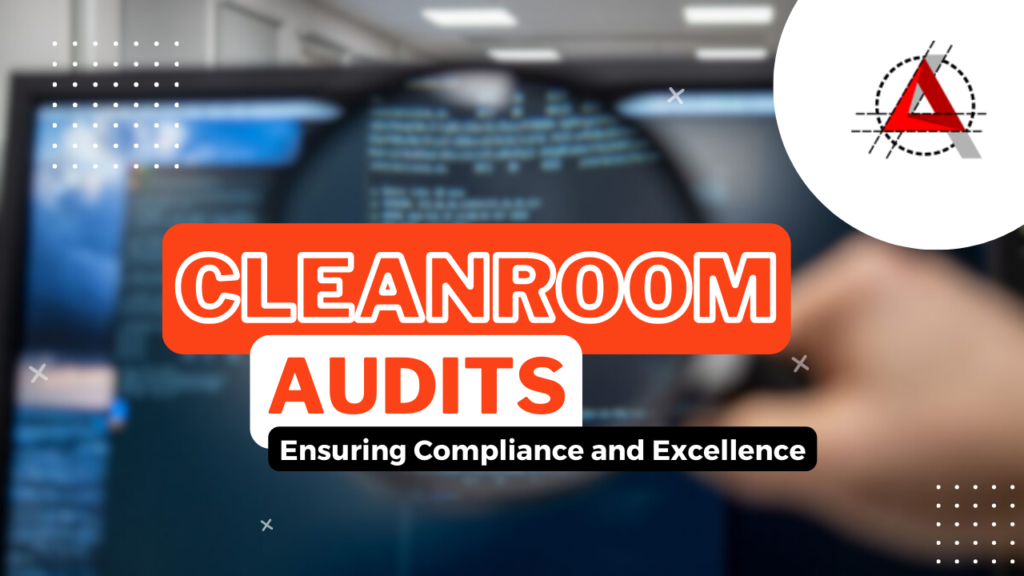Cleanroom Audits: Ensuring Compliance and Excellence

Cleanrooms are the hidden heroes in industries where even the smallest particle can compromise product quality and safety. These are precisely regulated settings with carefully regulated pressure, temperature, humidity, and particle count. Maintaining these exacting standards requires regular cleanroom audits. To make sure your cleanroom is compliant and performs at its best, this post discusses the importance of cleanroom audits, how often they should be performed, and best practices.
What is a Cleanroom Audit?
A cleanroom audit entails a comprehensive assessment of a cleanroom’s surroundings, procedures, and guidelines to guarantee adherence to internal guidelines and regulatory requirements. These audits evaluate several elements, such as:
- Cleanroom design and construction
- Air quality (particle counts and microbial contamination)
- HVAC system performance
- Compliance with Standard Operating Procedures (SOPs)
- Personnel practices and training
- Record-keeping and Documentation
Why Are Cleanroom Audits Important?
- Ensuring Compliance with Standards: Industries with strict regulations include biotechnology, pharmaceuticals, and electronics manufacture. There may be severe fines, recalls of products, or even plant closures because of noncompliance. Frequent audits aid in ensuring adherence to guidelines and standards including ISO 14644, GMP, and FDA requirements.
- Product Quality: Impurities within a cleanroom have the potential to lower product quality, resulting in contamination or flaws. Audits assist in identifying and reducing the danger of contamination, guaranteeing high-quality products.
- Operational Efficiency: Periodic audits aid in finding operational flaws in cleanrooms. Businesses can enhance workflow, minimize waste, and maximize resource use by solving these problems.
- Identifying and Mitigating Risks: Audits are an anticipatory approach to identify potential issues before they grow into significant ones. This helps to maintain an elevated level of security and reliability in operations.

Cleanroom Audit Frequency
The necessity of the cleanroom, past performance, and legal requirements are some of the variables that determine how frequently cleanroom audits occur. Here is a comprehensive idea:
- Routine Internal Audits: Performed every quarter or bi-annually to guarantee continued adherence to internal SOPs and GMP regulations. Teams responsible for internal quality assurance typically conduct these audits.
- External Audits: Conducted usually once a year or twice a year, by regulatory agencies or certifying bodies like the FDA or ISO. These audits make sure that laws and external requirements are followed.
- Supplier Audits: Executed yearly or in accordance with a risk assessment to guarantee the agreement between contract manufacturers and suppliers to satisfy the necessary requirements.
Best Practices for Cleanroom Audits
- Comprehensive Documentation: Preserve complete documentation of all audit results, corrective measures, and follow-up tasks. This record-keeping is essential for proving compliance in case of an audit from outside.
- Continuous Training: Provide staff with regular training on cleanroom procedures and the value of audits. Sustaining the integrity of the cleanroom requires well-trained staff.
- Environmental Monitoring: Establish ongoing or regular environmental monitoring for variables including microbial contamination and particle counts. This aids in keeping the state validated.
- Pre-Audit Preparation: Before conducting an external audit, do internal pre-audits to find and fix any potential problems. Findings of non-compliance can be avoided with this initiative-taking strategy.
- Use Technology: Utilize technological advancements like as statistical analysis and automated monitoring systems to increase accuracy and expedite audit procedures.
Conducting cleanroom audits are essential to upholding strict guidelines in regulated settings. They protect efficiency in operations and quality of products in addition to ensuring regulatory compliance. Through adherence to industry best practices and routine audits, businesses can reduce risks, improve performance, and establish an excellent history within its industry.
Audits are essential to maintaining excellence in the exacting field of cleanroom management, where accuracy is crucial, and guarantee that cleanrooms continue to be uncontaminated havens for vital operations.
Looking for a professional advice or have concerns regarding your cleanroom audits? Get in touch with us right away! Our team of experts is here to assist you in navigating the challenges of cleanroom management and stand by optimal operation of your facility.
GET IN TOUCH
Complete the form below to get in touch with our team.
